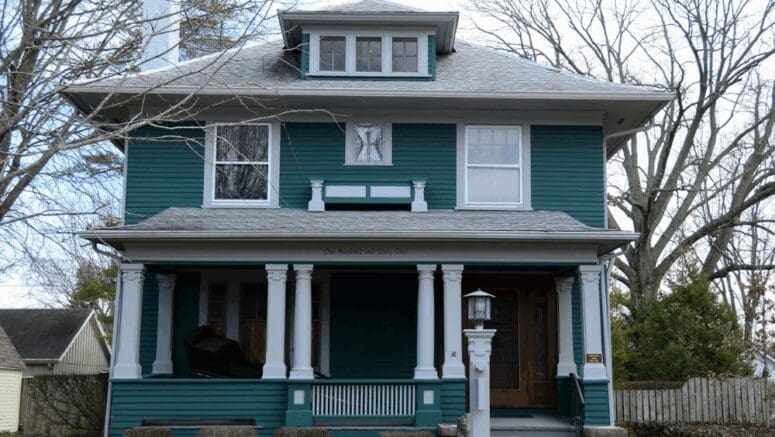What’s on the Maine Seller Disclosure Form?
- Published on
- 7 min read
-
 Joseph Gordon EditorClose
Joseph Gordon EditorClose Joseph Gordon Editor
Joseph Gordon EditorJoseph Gordon is an Editor with HomeLight. He has several years of experience reporting on the commercial real estate and insurance industries.
You know your Maine home better than anyone, including everything about it that needs work. If you’re planning to sell your home, you may be wondering how much you need to reveal on the Maine seller disclosure form, officially known as the Seller’s Property Disclosure. Whether you’re selling a Cape, a Ranch style, or a Victorian, disclosing any existing defects or issues is important.
A property disclosure form provides potential buyers with a clearer picture of your property’s condition and history, enabling them to make a more informed decision. Additionally, it can also protect you from any potential legal issues that could pop up if you fail to disclose something.
In this post, we’ll tell you what to expect, how much detail to provide, and what could go wrong if you leave something out. We’ll also provide a downloadable Disclosure Litmus Test to help you identify any red flags.
What is the Maine seller disclosure form?
The Maine seller disclosure form, or Seller’s Property Disclosure, is a 3-page document developed by the Maine Association of Realtors. It’s designed to help you disclose any known issues or facts about your home that could impact its value or a buyer’s decision to purchase the property.
Maine law requires sellers to disclose all material facts — in other words, anything that could impact the buyer’s use or enjoyment of the property. The Seller’s Property Disclosure form acts as a guide to help you do this thoroughly. It covers everything from structural issues and past repairs to neighborhood conditions and HOA rules.
Note: Even if you’re selling a home “as is” in Maine, you’re still required to be truthful and transparent about what you know.
What’s included in the Maine seller disclosure form?
Below is a section-by-section summary of the types of things you’ll be asked to disclose when selling a home in Maine. Note that this is just an overview of what you might encounter — the specifics of your disclosure form might differ.
Water supply
This section asks you to explain how your home’s water is supplied and whether you’ve had any issues with quality, quantity, or equipment. Additionally, whether the water has ever been tested, and if any test results indicated a problem.
Type of water system (public, private, drilled well, dug well, seasonal, other, unknown)
Any known malfunctions with the pump, quality, or quantity
Whether the water has been tested
Date of most recent test and whether results are available
Whether any past test results were unsatisfactory and what steps were taken
Additional comments
Waste water disposal
Here, sellers disclose whether the property uses a public, private, or quasi-public septic system, as well as any issues with the tank, leach field, or lines.
Type of system (public, private, quasi-public, unknown)
Any line or system problems (if public/quasi-public)
Septic tank details: size, type, location, date pumped, installation date, and any malfunctions
Leach field details: location, installation date, last servicing, any malfunctions
Whether the system is in a shoreland or coastal shoreland zone
Whether the seller has design records showing bedroom capacity
Number of people currently using the system
Whether the system serves more than one household
Heating systems and sources
This section covers each heat source in the home, including its age, maintenance history, fuel use, and any issues.
Type(s) of heating system(s) and fuel source(s)
Age of each system/source
Name of service company and date of most recent service
Annual fuel/energy consumption
Any malfunctions within the past two years
Chimney information (cleaning dates, inspections, shared flues, lining, presence of
Hazardous materials
Maine’s disclosure form includes a detailed hazardous materials section, covering underground tanks, asbestos, radon (air and water), lead-based paint, and other hazards.
Underground storage tanks
Whether tanks currently or previously existed
Whether tanks are in use and their age, size, and location
Whether there have been leaks or other issues
Materials stored in tank(s)
Asbestos
Whether asbestos is present in pipe insulation, siding, flooring tiles, roofing shingles, or other materials
Radon in the air
Whether the property has been tested
Date, testing party, results, and any mitigation measures
Whether post-mitigation testing was done, and if results are available
Radon in water
Whether testing has been done
Date, testing party, results, mitigation steps
Whether results are available
Lead-based paint
Whether lead-based paint or hazards are present
Location and basis for determination
Any reports or records
Whether cracking or peeling paint is present
Other sections will allow you to list general information about the property or explain, in detail, any sections that might be vague or require further explanation.
Download and print our Disclosure Litmus Test
Use this link to download a printable checklist (62KB) to prepare for completing the Maine seller disclosure form. The questions on this Seller Disclosure Litmus Test reflect the types of details and issues you may need to reveal about your home — and what buyers expect to know.
Check off anything that applies to your Maine property. If you’re unsure about something, make a note to ask your real estate agent or investigate further. The goal is to help you think through what needs to be documented and disclosed during the sale process.
What is not required to be disclosed? Maine law does not require you to disclose if someone died in the home or if the home had been used for illegal activity, such as a drug lab. You’re also not obligated to disclose supposed paranormal activity or personal reasons for selling unless you are directly asked, and your answer could be misleading.
Common mistakes sellers make on the disclosure form
Here are some of the most common missteps sellers make when filling out the Maine Seller’s Property Disclosure:
- Checking “yes” without providing an explanation: If you check a yes box that includes an “Explain” line, not providing the details could stall your home sale.
- Guessing instead of explaining: If you’re not sure about something, don’t make assumptions — state clearly that you do not know the answer. Even guessing could open you up to legal headaches.
- Failing to attach supporting documents: Inspection reports, permits, repair invoices, and warranties help verify your disclosures.
- Not disclosing repaired issues: Even if you’ve fixed a problem listed on the form, like a roof leak or plumbing issue, it still needs to be reported.
- Minimizing or softening the truth: Downplaying a defect can open you up to legal problems if you knowingly minimize a serious issue.
What if you fail to disclose something important?
If you fail to disclose a known material fact about your Maine home, the buyer may have grounds to cancel the contract or sue you after the sale. In some cases, nondisclosure can be considered fraud under Maine law, particularly if the omission appears intentional. Being upfront now helps prevent bigger headaches later.
When and how buyers review the disclosure
Under Maine’s standard purchase contract, you’re expected to provide a completed Seller’s Property Disclosure when the buyer makes their offer to purchase. The buyer then has a set review period, usually 72 hours, to examine the form and decide whether to move forward, request repairs, or cancel the deal.
Partner with a top Maine agent to protect your sale
Disclosing your home’s condition is one of the most important — and legally sensitive — parts of the selling process in Maine. A top local agent can help you understand what’s required, avoid common pitfalls, and provide expert guidance so you can complete the Seller’s Property Disclosure accurately and confidently.
Unsure where to start? HomeLight’s free Agent Match platform connects you with trusted real estate agents in your Maine market. We analyze over 27 million transactions and thousands of reviews to determine which agent is best for you based on your goals and selling timeline.
You’ll find more helpful guides in HomeLight’s Maine Seller Resource Center.
See the top real estate agents in 10 Maine markets:
- Top real estate agents in Old Orchard Beach
- Top real estate agents in Sanford
- Top real estate agents in Westbrook
- Top real estate agents in Saco
- Top real estate agents in Biddeford
- Top real estate agents in Gorham
- Top real estate agents in Portland
- Top real estate agents in Scarborough
- Top real estate agents in Lewiston
- Top real estate agents in Auburn
If you’re buying and selling at the same time, check out HomeLight’s Buy Before You Sell program, which can streamline the entire process so you only move once. Watch this short video to see how it works.
Header Image Source: (Roger Starnes Sr / Unsplash)
